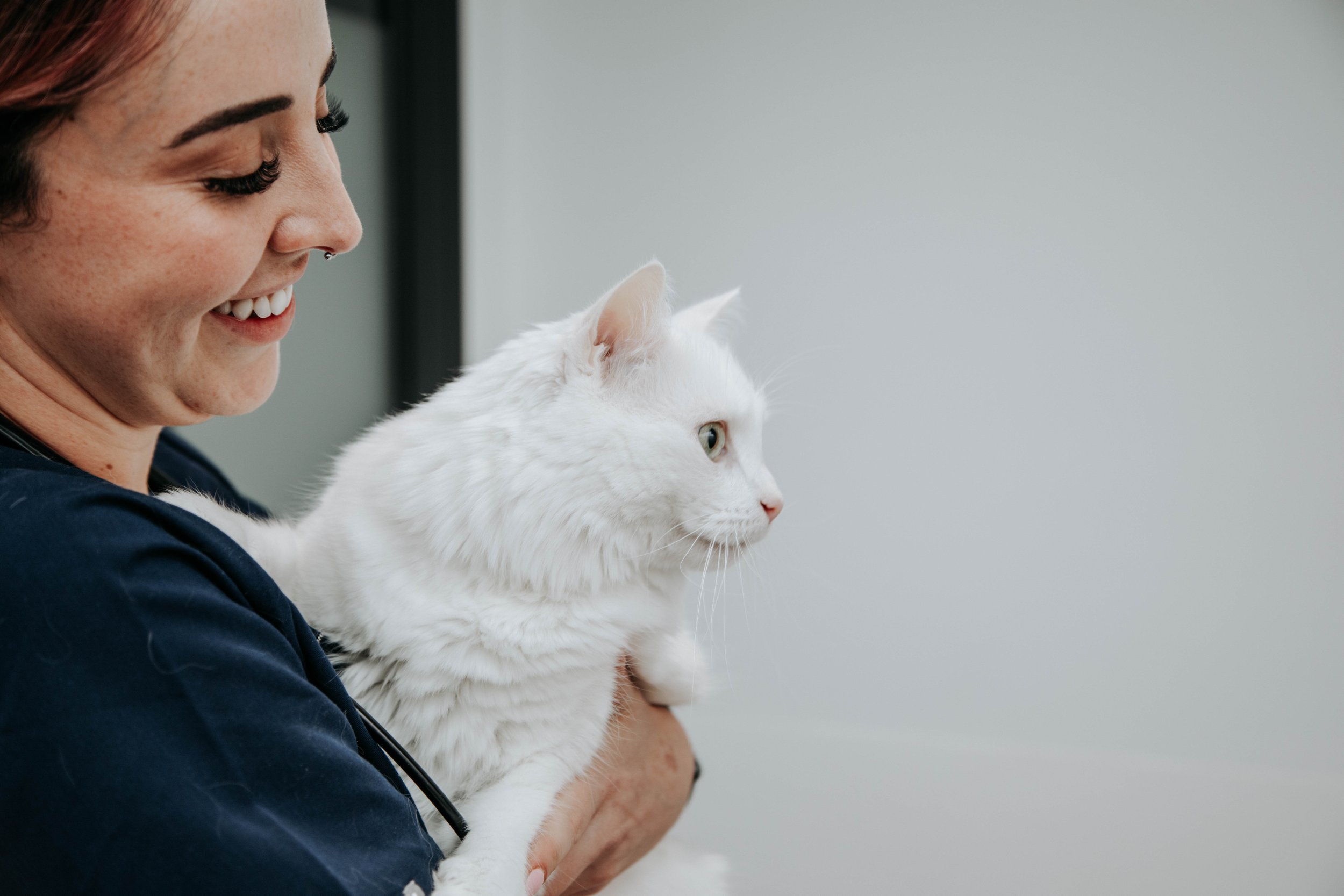
Dog & Cat Worming Treatment
Regular deworming helps prevent the discomfort and potential health risks associated with these parasites. It also helps to protect you and your family from worms that can infect humans.
What are intestinal worms?
Intestinal worms are internal parasites that live in your pet’s digestive system.
They can cause a variety of health issues, ranging from mild discomfort to serious illness.
Common symptoms include: diarrhoea, weight loss, lethargy, scooting and vomiting.
Types of Intestinal Parasites
Some of the common intestinal parasites are:
Hookworm
Small, thin worms that attach to the intestinal wall and feed on blood, leading to anaemia and weakness.
Tapeworm
Worms that attach to the intestines and absorb nutrients. They often cause weight loss and digestive issues.
Roundworm
Long, spaghetti-like worms that live in the intestines and can cause vomiting, diarrhoea, and weight loss.
Coccidia
A parasite that mainly affects puppies. Coccidia in puppies comonly causes severe diarrhea and vomiting
Whipworm
Residing in the large intestine, causing irritation and inflammation, leading to chronic diarrhoea.
Giardia
A common parasitic infection that can cause diarrhoea. Giardia can be found in contaminated soil and water.
What are heartworms?
Heartworms live in the bloodstream of dogs and cats. They migrate through the body and eventually occupy the heart and lungs. Heartworms are spread by mosquitos, and as a result these parasites are far more common in tropical environments such as Queensland and the Northern Territory. However, heartworms do occur in Melbourne and if your pet becomes infected it can be life-threatening. Fortunately, there are a variety of preventative options available. Book a consultation with one of our veterinarians to discuss the preventative option that best suits you and your pet.
How do pets get worms?
Dogs and cats can contract worms in various ways, including through contaminated soil, faeces, fleas or ingesting infected rodents.
Puppies and kittens can also get worms from their mother before birth or through her milk.
Symptoms
If your pet has worms, they can experience vomiting, diarrhoea, weight loss, dragging their bottom, bloating and visible worms in their faeces or around the anus.
Deworming Treatment
Pets should be dewormed every three months to keep them healthy and reduce the risk of parasites.
We can help you create a deworming schedule and provide reminders for when treatments are due.
Ordering deworming treatment in advance ensures you never miss a dose.
Talk to us about parasite prevention today.
Ensuring your pets are regularly dewormed is a key part of responsible pet ownership.






